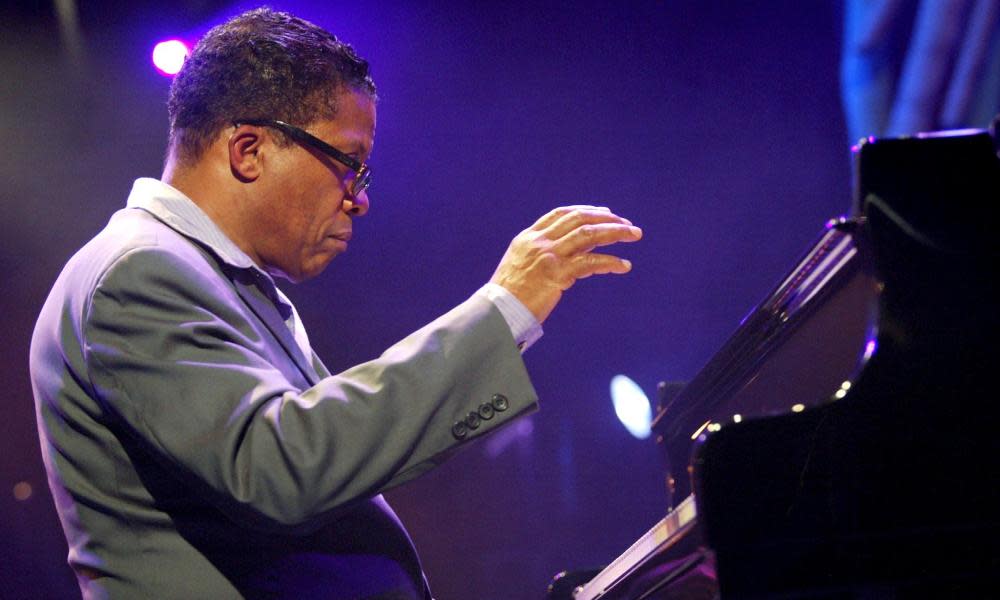It’s never too late to admit: I’ll never play piano like Herbie Hancock | Hugh Muir

There is no such thing as can’t, my late mother would say, and though I knew it wasn’t strictly true, it served as a motivator. Later, I used it as a gee-up for my own children. We were able to agree its validity as a direction of travel if not a guaranteed destination. All was well. Then came the piano.
I turned to the piano a few years ago having decided that a wrong needed righting. I was probably the only boy brought up in the music-infused black Christian church who – on the grounds of piety imposed by parents – was never allowed near a musical instrument. I love jazz. And I love jazz piano. There’s no such thing as can’t. And there was even a book for me called It’s Never Too Late to Play Piano. The problem is that now, after the horror of a grade two piano exam, I fear it might be.
For with middle age sometimes comes that middle age realisation. The possibilities aren’t endless. That ceiling – it does exist. If at first you don’t succeed, you can try and try again – but maybe the second and third times just won’t be any better. Too gloomy? Well did Robert the Bruce try and try and pass his grade two piano? Well did he?
There were always doubts; it never seemed right that someone with credible aptitude should suffer the agonies I did. I doubted that Herbie Hancock or Nina Simone or Oscar Peterson spent the hours I spent mangling scales on a Yamaha keyboard and cursing liberally.
The examiner at my grade one exam, a kindly woman with an understanding smile, did all she could to be welcoming. And for a second or two, I felt great; ready to fulfil a great potential. And then my forearms locked firm as if cast in plaster, and my fingers became taut as if painted with superglue. I stumbled in the manner of a wild drunk through Mozart’s Minuet in G, bulldozed a jagged path down Gedike’s Moderato and shook uncontrollably through a playing of Richard Rodney Bennett’s Thursday that the composer would never have recognised. I scraped a pass that day. But the warning signs were there.
For grade two, things should have been different. I did the scales, the arpeggios, the contrary motions. I did the pieces – oh yes, I did the pieces: some Handel, a lullaby and a show tune called I’m an Old Cowhand (from the Rio Grande). There would be no mistakes; no nervousness. I played the lullaby on a very public piano at St Pancras station en route to the conservatoire; played, a little more shakily, the show tune in the warm-up room. And then, as the sun streamed through the window and the examination began … rigor mortis. Brain fade. Memory loss. Sight loss. Meltdown.
“Thank you for playing for me today,” said the examiner when the cataclysm was over. “I think you’re joking, but you’re being very kind,” I replied, grasping for dignity. He smiled the smile with which we comfort the bereaved. He knew. Everything started well, he wrote in his report, but nothing was secure. A fail – 85 out of 100. I expected worse. “Needed more stability, fluency and accuracy for a pass today.”
So what next? I could forget exams and just play for the “joy” of it. Or press on and hope for incremental progress that might make grade two a reality, not a pipe dream, with or without the yips.
Just keep going, said a friend. The tuition is excellent, and with 10,000 hours of practice, anyone can learn to play almost anything. But again, the doubts. Maybe nature matters more than lessons and nurture. Does a middle-aged man, of declining years and no obvious potential in this regard, have 10,000 hours left to gamble? Can relatives – ever supportive – bear more hours watching a tortured soul jabbing at the white keys and swearing? Should they?
It’s never too late to play piano, the book said. I believed it. I want to believe it. But things are less clear-cut when hope meets experience. To “no such thing as can’t”, we might easily add, no such thing as a sure thing. And perhaps, as Clint Eastwood’s Dirty Harry always said: a man’s got to know his limitations.

 Yahoo News
Yahoo News 
